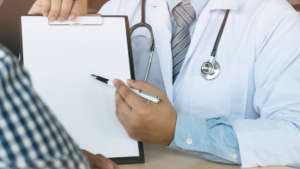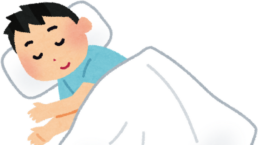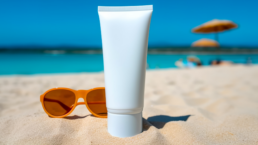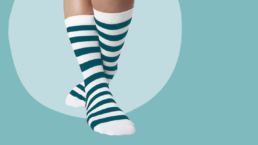The Importance of Sleep for Physical and Mental Health
Hello, Sparkle Pharmacy Community!
I hope this message finds you well and rested! Today, I want to talk about something that often slips to the bottom of our to-do lists: sleep.
Whether you're a night owl burning the midnight oil or a busy bee with endless responsibilities, it's easy to forget just how important sleep is for both our physical and mental health.
As your community pharmacist, I'm here to share some valuable insights about why a good night's sleep is essential and how it impacts every part of your well-being.
Why Sleep is Important for Your Body
Think of sleep as the time your body uses to restore and rejuvenate itself. Here's what happens while you're catching those precious Z's:
- Muscle Repair and Growth: During deep sleep, your body works to repair muscles and tissues, making sleep essential for physical recovery after a long day.
- Immune System Boost: Sleep plays a major role in keeping your immune system strong, helping to fight off infections and illnesses.
- Heart Health: Lack of sleep can put unnecessary strain on your heart. Studies show that getting 7-8 hours of rest per night helps regulate blood pressure and reduces the risk of heart disease.
- Maintaining a Healthy Weight: Did you know that sleep deprivation can affect your metabolism? It can also make you feel hungrier, leading to overeating and weight gain.
Sleep and Your Mental Health
While sleep is important for physical well-being, it’s just as crucial for mental health. In fact, poor sleep can lead to:
- Increased Stress and Anxiety: A lack of rest makes it harder for your brain to process emotions and deal with stress. Over time, this can lead to heightened anxiety.
- Depression: Sleep and mood are closely connected. When we don't get enough rest, it can contribute to feelings of sadness and depression.
- Reduced Focus and Memory: Struggling to concentrate or feeling forgetful? It might be time to examine your sleep habits. Our brains use sleep to process information and solidify memories from the day.
Tips for Better Sleep
If you're finding it difficult to get a restful night's sleep, here are a few tips to help:
- Create a Sleep Routine: Try to go to bed and wake up at the same time every day, even on weekends. This helps regulate your internal clock.
- Limit Caffeine and Sugar: Avoid caffeine and sugary snacks in the evening, as they can interfere with your ability to fall asleep.
- Create a Relaxing Environment: Your bedroom should be a sanctuary for sleep. Keep it cool, quiet, and dark for optimal rest.
- Limit Screen Time Before Bed: The blue light from phones, tablets, and computers can interfere with your body's production of melatonin, the hormone that regulates sleep.
- Talk to Your Pharmacist: If you have trouble falling or staying asleep, I’m here to help. Whether it's finding natural sleep aids or addressing any underlying issues like stress or anxiety, your pharmacist is a great resource.
When to Seek Help
If you’re still struggling with sleep despite making lifestyle changes, it’s important to seek professional advice. Conditions like insomnia, sleep apnea, or restless leg syndrome can all affect your sleep quality. Speak with your doctor or reach out to me here at Sparkle Pharmacy so we can work together to improve your rest.
Remember, sleep is not a luxury – it’s a necessity for both your body and mind. Prioritize your rest, and you’ll soon notice the positive impact it has on your energy levels, mood, and overall health.
Stay well and rest easy,
~ Mr. Sparkle
Year-Round Healthy Skincare Tips
As the seasons change, so do the needs of our skin. Whether it's the cold winds of winter or the sunny days of summer, maintaining healthy skin requires a year-round commitment. I’m Mr. Sparkle, your friendly neighborhood pharmacist, and I’m here to share some essential skincare tips to keep your skin glowing and healthy no matter the time of year!
Winter: Keep the Moisture In
Hydration is Key:
Winter's cold air and indoor heating can strip your skin of its natural moisture. To combat this, opt for a rich, hydrating moisturizer. Look for ingredients like hyaluronic acid, glycerin, and ceramides, which help lock in moisture. Don’t forget to apply immediately after bathing to seal in the hydration!
Gentle Cleansing:
Choose a gentle, fragrance-free cleanser that won’t dry out your skin. Harsh soaps can strip away your skin’s natural oils, leading to irritation and dryness.
Don’t Skip the Sunscreen:
Even in winter, UV rays can harm your skin. A broad-spectrum sunscreen with at least SPF 30 is your best defense against premature aging and skin cancer. Remember, snow can reflect UV rays, so double up on protection if you’re spending time outdoors!
Spring: Time for Renewal
Exfoliate:
Spring is all about renewal. Slough off the dead skin cells that have accumulated over winter with a gentle exfoliant. Products containing alpha hydroxy acids (AHAs) or beta hydroxy acids (BHAs) can help reveal smoother, brighter skin.
Lighten Up:
As the weather warms, you might find that your skin needs less moisture than it did in winter. Switch to a lighter moisturizer that still provides hydration without feeling too heavy.
Allergy Awareness:
Springtime allergies can lead to irritated, sensitive skin. If you’re prone to allergic reactions, keep your skincare simple. Look for hypoallergenic products and avoid heavily fragranced creams and lotions.
Summer: Sun Protection is a Must
Sunscreen, Sunscreen, Sunscreen:
This can’t be emphasized enough—protect your skin from the sun’s harmful rays. Use a broad-spectrum sunscreen with SPF 30 or higher, and reapply every two hours, especially if you’re swimming or sweating. Don’t forget often-missed spots like your ears, neck, and the tops of your feet.
Stay Cool and Hydrated:
Hot weather can lead to excess sweating, which can clog pores and cause breakouts. Keep your skin clean with a gentle cleanser and stay hydrated by drinking plenty of water throughout the day.
Protect Your Lips:
Your lips are prone to sunburn too! Use a lip balm with SPF and reapply often, especially after eating or drinking.
Fall: Prepare and Repair
Repair Sun Damage:
If you’ve spent a lot of time outdoors during the summer, now’s the time to repair any sun damage. Products containing retinoids or vitamin C can help reduce the appearance of sunspots and improve skin texture.
Transition Your Moisturizer:
As the weather cools, your skin may start to feel drier. Gradually transition to a more nourishing moisturizer to keep your skin comfortable and hydrated.
Protect Against the Elements::
Wind and cooler air can dry out your skin. Shield it from the elements by wearing a scarf or hat when you’re outside, and apply a barrier cream to areas prone to chapping, like your hands and cheeks.
General Tips for All Seasons
Stay Hydrated:
Drinking enough water is crucial for keeping your skin hydrated from the inside out. Aim for at least 8 glasses a day, and more if you’re active or it’s hot outside.
Eat for Your Skin:
A diet rich in antioxidants, healthy fats, and vitamins can do wonders for your skin. Incorporate foods like fruits, vegetables, nuts, and fish into your meals for a healthy, glowing complexion.
Get Enough Sleep:
Your skin repairs itself while you sleep, so aim for 7-9 hours of quality sleep each night. It’s called beauty sleep for a reason!
Know Your Skin Type:
Understanding whether your skin is oily, dry, combination, or sensitive will help you choose the right products. If you’re unsure, feel free to stop by Sparkle Pharmacy—we’re here to help you figure it out!
No matter the season, taking care of your skin is a year-round commitment. At Sparkle Pharmacy, we’re always here to support you with personalized advice and high-quality skincare products. So, whether you need help choosing a moisturizer or finding the perfect sunscreen, don’t hesitate to stop by and chat with us.
~ Mr. Sparkle
The Importance of Regular Check-Ups
Dear Sparkle Pharmacy Community,
It's your friendly neighborhood pharmacist, Mr. Sparkle, reaching out to each one of you with a message that's close to my heart – the importance of regular check-ups with your general practitioner. Just like how I'm here to ensure you get the right prescription to stay healthy, your annual check-up is your prescription for a long and vibrant life.
In the hustle and bustle of our daily lives, it's easy to overlook the significance of scheduling that annual appointment with your general practitioner (GP). After all, if you're feeling fine, why bother, right? Well, my friends, let me share a little secret with you – an annual check-up is not just about treating illness; it's about preventing it.
Prevention is the Best Medicine:

We all know the saying, "Prevention is better than cure," and it couldn't be truer. Regular check-ups allow your GP to assess your overall health and catch potential issues before they become major concerns. Think of it as a tune-up for your body – a chance for your GP to fine-tune your health and catch any glitches before they turn into full-blown malfunctions.
Lab Work: The Inside Scoop on Your Health:
One of the key components of an annual check-up is the lab work. Blood tests, cholesterol checks, and other diagnostic tests provide invaluable insights into your internal health. It's like a sneak peek into the workings of your body's engine. These tests can detect early signs of conditions like diabetes, high cholesterol, and anemia, allowing for early intervention and management.
Know Your Numbers:
During your annual check-up, your GP will review various vital signs and health markers. Blood pressure, heart rate, BMI, and other measurements help create a comprehensive picture of your well-being. By understanding your baseline numbers, you and your healthcare team can work together to set and achieve health goals.
Building a Strong Relationship with Your GP:
Regular check-ups also contribute to building a strong and open relationship with your general practitioner. When your GP knows you and your health history well, they can provide personalized advice and care. It's like having a health ally who is familiar with your unique needs and can guide you towards making the best decisions for your well-being.
A Few Minutes Today, Years of Health Tomorrow:
I understand that our lives are busy, and finding the time for an annual check-up may seem challenging. However, consider this – a few minutes spent on preventive care today can save you countless hours and worries down the road. Your health is an investment, and an annual check-up is a small but significant contribution to that investment.
So, dear Sparkle Pharmacy community, let's make a pact to prioritize our health. Schedule that annual check-up with your GP, and let's take proactive steps towards a healthier, happier future. Remember, I'm always here at Sparkle Pharmacy to support you on your journey to well-being.
Here's to your health and happiness!
~ Mr. Sparkle
Organize Your Life and Beyond
Greetings, dear community and cherished patients! It’s your friendly neighborhood pharmacist, Mr. Sparkle, here to shed some light on a topic that may not be as exciting as the latest health trends or new medications, but is equally, if not more, important: planning ahead.
In the hustle and bustle of our daily lives, it’s easy to push thoughts of the future to the back burner. However, taking the time to organize important legal and medical documents, such as a will, power of attorney (POA), and healthcare directives, can bring peace of mind not only to you but also to your loved ones.

Let’s start with the basics. A will is a legal document that outlines how you wish your assets to be distributed after you pass away. Without a will, your estate may be subject to intestacy laws, meaning the state will decide how your assets are distributed. By drafting a will, you ensure that your wishes are carried out and minimize potential disputes among family members.
Equally important are legal and medical powers of attorney. A legal POA grants someone you trust the authority to handle financial and legal matters on your behalf if you become incapacitated. Similarly, a medical POA allows someone to make healthcare decisions for you if you are unable to do so yourself. Choosing the right person for these roles is crucial, so take the time to consider who would best represent your interests and values.
In addition to these legal documents, it’s essential to have important house documents organized and easily accessible. This includes deeds, mortgage papers, insurance policies, and any other relevant paperwork. Having these documents in order can make it much easier for your loved ones to handle your affairs in case of an emergency or after your passing.
Finally, let’s talk about funeral wishes. While it may not be the most comfortable topic to discuss, having your funeral preferences documented can relieve your loved ones of the burden of making difficult decisions during an already emotional time. Whether you prefer a traditional burial, cremation, or have specific requests for your memorial service, outlining your wishes in advance ensures they are honored.
At Sparkle Pharmacy, we believe in caring for the whole person, not just their physical health. That’s why I encourage each and every one of you to take the time to plan ahead and organize these important documents. Not only will it provide peace of mind for you, but it will also ease the burden on your loved ones during difficult times.
If you have any questions or need assistance with organizing your important documents, don’t hesitate to reach out. We’re here to help in any way we can.
Until next time, stay healthy and take care!
~ Mr. Sparkle
Brisk Walk For Wellness
Hello, dear community and cherished patients! It's your friendly neighborhood pharmacist, Mr. Sparkle, bringing you a spark of health and wellness from Sparkle Pharmacy. Today, let's dive into a topic that's close to my heart and crucial for our overall well-being – regular exercise.
I know, I know, the word "exercise" might conjure up images of intense workouts and sweating buckets. But fear not, my friends! I'm here to tell you that incorporating regular physical activity into your routine doesn't have to be an arduous task. In fact, it can be as simple and enjoyable as taking a brisk walk!
Walking: A Simple Path to Good Health!

"Picture this: the sun shining, a gentle breeze kissing your face, and the rhythmic sound of your footsteps hitting the pavement. Yes, I'm talking about the magic of walking! It's an excellent way to boost your overall health without the need for fancy equipment or expensive gym memberships."
Now, when I say walking, I don't mean a leisurely stroll through the park (although that has its merits too). I'm talking about brisk walking – a pace that gets your heart pumping and your muscles engaged. It's the kind of walk that leaves you feeling invigorated and ready to tackle whatever the day throws at you.
BENEFITS GALORE:
Why should you lace up those sneakers and embrace the art of brisk walking, you ask? Well, let me shine a light on the myriad of benefits awaiting you:
- Heart Health: Brisk walking gets that heart of yours working, improving cardiovascular health and reducing the risk of heart disease.
- Mood Booster: Say goodbye to stress and hello to a surge of endorphins! Walking has been proven to lift your mood and alleviate feelings of anxiety and depression.
- Weight Management: Combined with a balanced diet, brisk walking is a fantastic tool for maintaining a healthy weight. It burns calories without being too demanding on the joints.
- Increased Energy: Contrary to popular belief, physical activity can boost your energy levels. So, if you find yourself dragging your feet, a brisk walk might be just the pick-me-up you need.
- Better Sleep: Quality sleep is essential for overall well-being. Regular exercise, like brisk walking, can contribute to more restful nights.
MAKING IT A HABIT:
Now that you're convinced of the wonders of brisk walking, let's talk about making it a habit. Start small – aim for 20-30 minutes a day, five days a week. You can break it down into two or three shorter sessions if that fits better into your schedule.
Grab a buddy, whether it's a friend, family member, or even your four-legged furry friend. Having a walking companion can make the experience more enjoyable and hold you accountable.
Oh, and don't forget to choose comfortable footwear and stay hydrated. A water bottle in hand can be your trusty sidekick on your walking adventures.
FINAL THOUGHTS FROM MR. SPARKLE:
Dear community, your health is your greatest wealth, and a simple act like brisk walking can be a priceless investment. So, lace up those shoes, step outside, and let the magic of walking spark a positive change in your life.
Remember, at Sparkle Pharmacy, we're not just about medications; we're here to support your journey to a healthier, happier you. If you have any questions or need advice on incorporating exercise into your routine, don't hesitate to stop by. Until next time, take those steps towards a brighter, healthier future!
~ Mr. Sparkle
A Beginner's Guide to Understanding Prescription Labels
When you pick up a prescription from your pharmacy, the label on your medication bottle contains crucial information to ensure you use the medicine safely and effectively. Understanding this label can help you avoid mistakes and get the most benefit from your treatment. Here’s a breakdown of what you need to know.
Patient Information:
- At the top of the label, you’ll find your name and sometimes your address. Always double-check this section to ensure the medication is intended for you. Taking someone else's medication, even accidentally, can be dangerous.
Medication Name:
- This is the name of the drug you’ve been prescribed. It could be the brand name (e.g., Tylenol) or the generic name (e.g., Acetaminophen). Knowing the generic name is important, as it can help you identify the same medication in different forms or brands.
Dosage Instructions:
- This section tells you how much medication to take, how often, and for how long. For example, it might say, “Take one tablet by mouth twice daily for 7 days.” Follow these instructions carefully to ensure the medication is effective.
- Dosage Amount: Indicates the specific dose, such as "500 mg."
- Frequency: How often you should take it, e.g., “every 8 hours.”
- Route of Administration: How you should take the medication, such as "by mouth" or "apply topically."
Refill Information:
- This part of the label tells you how many refills are left on your prescription. It might say “0 refills” or “3 refills before [date].” Make sure to keep track of your refills and contact your pharmacy in advance if you need more medication.
Expiration Date:
- The expiration date indicates when the medication should no longer be used. Using medicine past its expiration date can reduce its effectiveness and may even be unsafe. If your medication is expired, contact your pharmacist for guidance.
Special Instructions:
- This area may include additional guidance, such as “Take with food,” “Do not drink alcohol while taking this medication,” or “Store in a cool, dry place.” These instructions are crucial for ensuring the medication works as intended and to avoid side effects.
Pharmacy Information:
- Your pharmacy’s contact details, including the phone number and address, are usually listed at the bottom of the label. If you have any questions about your medication, don’t hesitate to call your pharmacist.
Warnings and Precautions:
- Labels may also include warnings like “May cause drowsiness” or “Avoid sunlight.” These warnings are there to help you avoid potentially dangerous situations. Always read and follow these warnings closely.
Prescription labels contain vital information to help you use your medication safely and effectively. By understanding each part of the label, you can ensure you’re taking your medicine correctly, reducing the risk of side effects or errors. If you’re ever unsure about anything on your prescription label, your pharmacist is your go-to resource for clarification and advice.
Tired of COVID?
We are headed into the 10th month of this pandemic and I am starting to feel like there is no light at the end of this tunnel. Numbers keep going up, rules keep changing, death tolls keep rising and we continue to feel isolated from many of our friends and family. We missed celebrating Thanksgiving with others.....will we have to miss Christmas too? Wearing a mask has become so normal to me that I have at times caught myself questioning why something looks “off” while watching a movie or show, only to discover that I was confused about the lack of masks; the funny thing is that now newly released episodes are starting to have masks and covid included. It’s easy to get complacent with this pandemic, but we must remember why we are doing all this in the first place.
Yes, the majority of people that catch Covid-19 will be affected mildly (like a cold or flu) or not at all (asymptomatic), but what about the others? I know a few people that think they had Covid based on experiencing a few uncommon symptoms (e.g. taste disturbance), a few people that tested positive and had a moderate fever, chills, and headache, but I also know people that are/were affected badly. Do you know anyone that had/has severe health complications due to Covid-19? I recently had my first experience with knowing someone close to me that was affected badly by Covid. They were in the hospital for over 6 weeks, on a ventilator for oxygen, and put into a coma to maintain stability during the recovery. The sound of that was so scary to me when considering my friends, family, neighbors, extended community, and patients. Luckily they are out of the hospital now and making a slow recovery. Losing someone to Covid would be the worst.
I think we all need to remember this and stay humble during these crazy times. I feel like we will be hearing about the ramifications of Covid-19 for at least another year, but I am certain that at some point it will be over and just a memory.
Compression Socks
Compression socks sound so annoying until you try them. Compression socks are often recommended for people with swelling, edema, varicose veins, or soreness in their legs. This can happen for so many reasons, however, the common issue created is a difficulty for the veins to
circulate blood-flow back up to the heart to be re-circulated, thus causing fluid/blood to remain in the legs. This swelling can cause pain, discomfort, fatigue, lack of energy, and cramps.
Compression socks are an easy solution. Simply put, compression socks compress. They put pressure on the legs and veins and in return, this compresses the vein to help create an internal pressure that assists the veins in getting that blood out the vein and back to the heart for
re-oxygenation and re-circulation. Without this system of re-circulating blood through the heart and around the body, the legs get swollen. Long term this can create complications to one's health, and just imagine, the solution was simply a different pair of socks.
There are different levels of compressions socks. Mild (8-15mmHg) is great for travel, mild swelling, or those that have difficulty getting a pair of higher-grade compression socks on, and usually inexpensive; this can be cheating yourself if the doctor has specifically
recommended a stronger grade of pressure for various reasons, however, I still believe something is better than nothing. Moderate (15-20mmHg) is obviously a little bit stronger than mild, and so it can be a little pricier, more effective, and slightly tougher to get on.
Medical grade (20-30mmHg) usually requires a prescription and recommendation from a doctor as these provide a higher level of pressure, usually indicated as a treatment; sometimes athletes or those with no underlying medical conditions can purchase without a
prescription. The price greatly varies between brands, fabric, and length (below knee vs above knee vs thigh-high vs pantyhose). Severe (30-40mmHG) is the big leagues; this definitely needs a prescription and medical advice as likely for a more severe situation or swelling
that requires medical attention.
Often compression socks require measurement. Mild socks are convenient because they usually don't need measurement and fitted by shoe size. Most other levels of compression require measurement because as the level of pressure increases, so does the difficulty to put these socks
on and thus requires the fitting to be more specific to your needs; we measure all necessary aspects, from ankle to largest part of the calf, and then the thigh if needed. Lastly, if the measurement is needed, it is often best to get measured first thing in the morning before the
leg begins to swell from the day's efforts.
I know when I am disciplined enough to wear my compressions socks, I feel a huge difference in relief and energy as a person that stands for a living as a pharmacist, but also as someone who has broken both his legs (Left ankle was a slip and fall, right ankle was soccer, eight years apart).
Are you ready to try your first pair?










